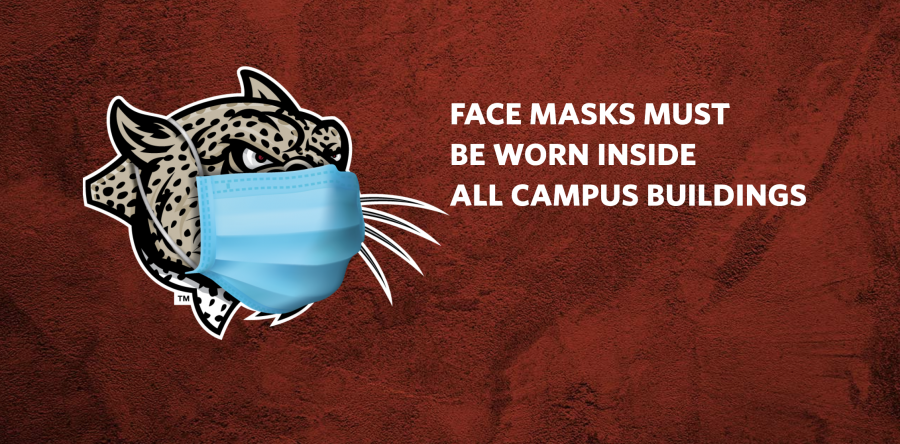Students will be returning to campus two weeks earlier than normal this year as part of the Path to Fall 2020 plan announced by President Alison Byerly this afternoon. The semester is set to begin Aug. 17 and end Nov. 20 to prevent a possible “resurge [of COVID-19] during the winter” if students were to travel over Thanksgiving break then return to campus, according to the college’s fall semester FAQ page.
With the long-awaited release of the plan, the college outlined the fall timeline and addressed many of the precautions they will be taking to ensure the safety of the community with the return to campus. However, many of the finer details have yet to be worked out. Questions remain about how Lafayette will deliver in-person versus remote teaching, and how developing health regulations will influence social life, dining options and tuition.
The college plans to offer both in-person and remote learning options in the fall, though it is unclear to whom the remote learning option will be available or if adjustments to room and board and tuition costs will be made for students who do not return. Byerly’s announcement said that faculty are working to “provide engaging and challenging courses in a mixture of formats” so that students who are unable to return to campus will still have access to “remote learning modalities.”
Students who need to pursue their degree fully remotely in the fall should contact their class dean.
Some faculty and staff may also have the option to teach or work from home during the semester. Which faculty and staff members can “fulfill professional obligations from home” will be determined by division heads, according to the FAQ.
Byerly said in the memo that the college has arranged to conduct population level testing for the COVID-19 virus on students, faculty and staff during a phased return to campus, as well as to continue monitoring and testing randomly selected groups throughout the semester. Students will be assigned dates and times to move in prior to the start of classes. Vice President for Campus Life Annette Diorio noted that, after students return to campus, results for the rapid serology tests will be available within 24 hours in most cases. During this period, students will be asked to self-isolate.
Diorio said in a community town hall meeting last Monday that the college has isolation and quarantine housing set up for anyone who tests positive for COVID-19, but students who are able to return home will be encouraged to do so.
In addition to ongoing testing, contact tracing, and safety training on campus, other health and safety responsibilities will be wrapped into a “social contract” to be “developed with student and campus community input.” Diorio said last Monday that this contract would be “less about rules, and more about shared understanding of what has to happen to keep the community safe.”
It is currently unclear who will be responsible for upholding the stipulations of this contract and how these will be enforced, although Diorio noted that the college will adjudicate “violations through [their] normal conduct process” last Monday. The FAQ also notes that upholding the college’s regulations will be governed in part through “collective responsibility,” meaning that members of the community will “hold each other accountable for adhering to the behaviors that will help keep us all safe.”
One regulation, currently required by the Pennsylvania Department of Education, will be for students to wear masks in classrooms and in other indoor public spaces on campus. The school will provide masks with a “pretty cool Lafayette logo on it,” according to Diorio. Other regulations specifically regarding social distancing, student organizations, campus events and other community activities have yet to be announced.
It is also unclear how Lafayette will establish appropriate social distancing during meals, given the increasingly busier dining halls, especially during the lunch hour. With dining seating likely to be at 50 or 75 percent capacity for open dining spaces such as Upper and Marquis, the college will likely need to either increase capacity, add more dining options or stagger the lunch hour. An earlier start to the semester, and a lag in construction due to COVID-19, could result in a later opening date for the bookstore and The Trolley Stop diner, which were scheduled to open along with the new McCartney street housing this fall.
A survey conducted in fall 2019 revealed that 85 percent of staff, 81 percent of students and 74 percent of faculty think that it is “moderately” or “very” important to maintain the common lunch hour at noon. Many co-curricular and academic meetings are scheduled at lunch, and eliminating the common hour would need a restructuring of the class day, something a campus-wide committee is already working on.
Despite the months of preparation that went into the release of the Path to Fall 2020 Plan, the fall semester is still not set in stone. According to the FAQ, “plans could change as circumstances change and the continued guidance [from Gov. Tom Wolf] evolves.”
Questions and suggestions for the ongoing development of the plan can be sent to the administration through a web form available on the college website.























































































































